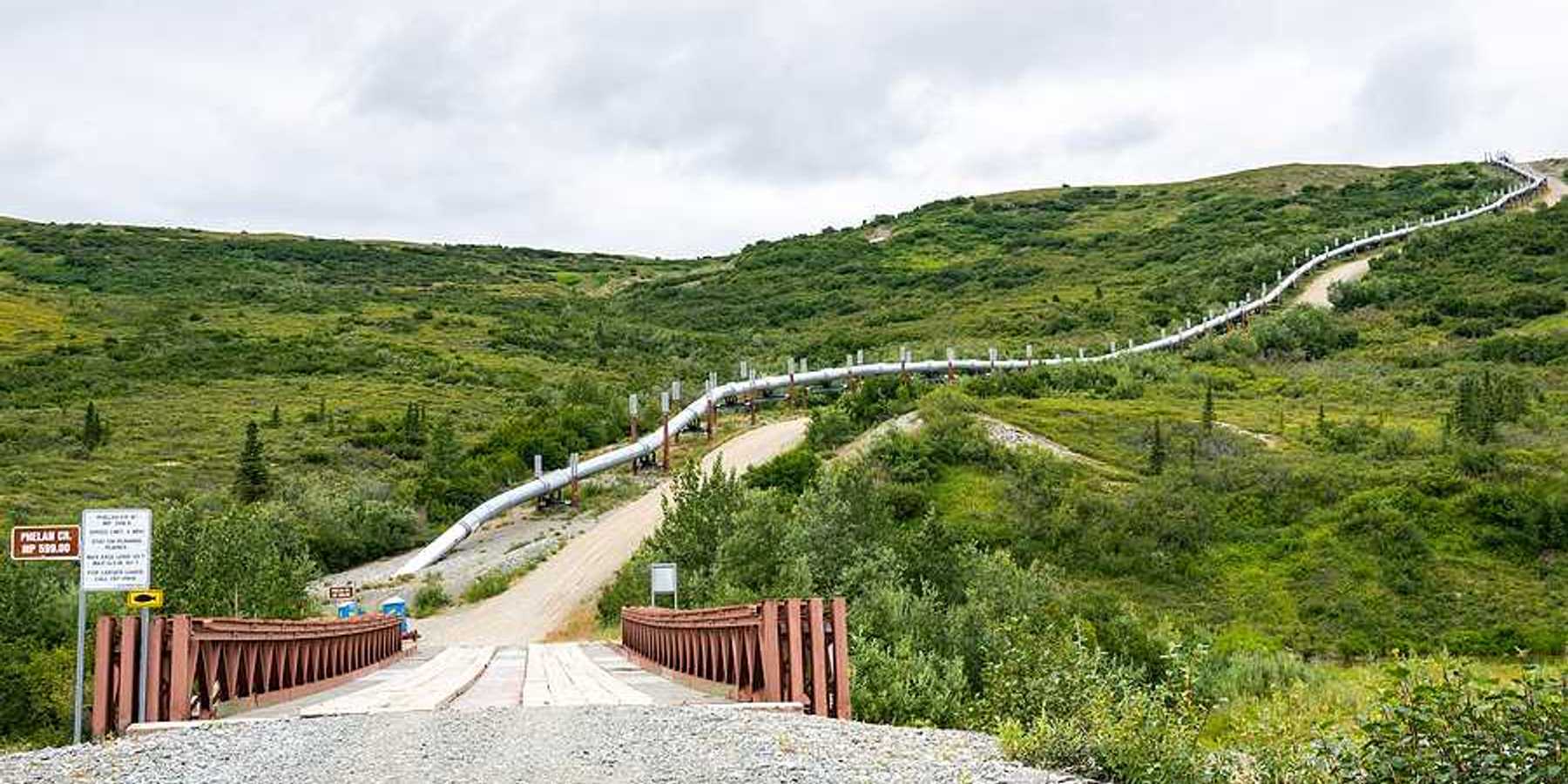media
AI-driven misinformation on climate change is a growing threat
AI tools like Bard and ChatGPT have been found to generate and spread climate change misinformation, raising concerns about their potential impact on public opinion.
In short:
- Studies show that AI tools like Bard and ChatGPT can fabricate climate misinformation, making it harder to distinguish real science from fake.
- AI-generated misinformation can be spread via synthetic media, social bots, and algorithms that tailor content based on users’ biases.
- Researchers are developing AI tools to counter misinformation, but they face challenges such as “hallucinations” and the rapid pace of AI advancement.
Key quote:
“ ... researchers have suggested that AI is being used to emotionally profile audiences to optimize content for political gain.”
— Asheley R. Landrum, associate professor at the Walter Cronkite School of Journalism and Mass Communication and a senior global futures scientist at Arizona State University
Why this matters:
AI-generated climate misinformation threatens to undermine trust in science. Its ability to spread rapidly and persuasively, especially on social media, makes it a significant challenge for combating climate disinformation and influencing public policy.
Related: Fossil fuel industry spreads misinformation to hinder global shift to renewable energy
Chevron mixes news and self-promotion in West Texas
Chevron's "Permian Proud" website offers regional news in West Texas and New Mexico, blending positive stories about the community with the company’s perspective on the oil industry.
In short:
- Chevron runs the "Permian Proud" website, offering local news alongside company-friendly content in a region with limited news outlets.
- Critics argue the site is part of a broader effort by Chevron to influence public perception in areas where it operates.
- Local officials generally support the site, viewing it as a community benefit.
Key quote:
“Permian Proud is a blatant, naked attempt by industry to have their side of the story be told.”
— Miguel Escoto, environmental advocate
Why this matters:
Chevron's control over local news narratives raises concerns about the lack of independent journalism in oil-rich regions, potentially skewing public understanding of environmental and economic issues.
Related EHN coverage:
Dramatic climate language does little to increase public concern
New research shows that using terms like "climate emergency" or "global boiling" doesn't significantly raise public concern compared to traditional phrases like "climate change."
In short:
- The study found that dramatic phrases like "climate crisis" generated less concern than expected.
- Only 33% of respondents had heard of "climate justice," with a large partisan divide in concern levels.
- Researchers suggest that concrete actions and relatable role models might be more effective than new terminology.
Key quote:
“You can’t be concerned about something that you’re not familiar with.”
— Wändi Bruine de Bruin, professor of public policy at USC
Why this matters:
Public awareness of climate change is high, but the push for more evocative language may not be the best strategy to inspire action. Focusing on clear, actionable steps could better motivate individuals to make impactful changes.
Related EHN coverage:
The truths and lies of Trump and Musk's X conversation on climate change
In a two-hour conversation on X, former President Trump and Elon Musk debated climate change, offering mixed views on the issue.
Brad Plumer and Raymond Zhong report for The New York Times.
In short:
- Musk warned that an immediate halt to fossil fuels would be catastrophic, but supported a gradual transition to renewable energy over 50-100 years. He didn't acknowledge even the most aggressive energy transition plans envision a gradual process.
- Trump expressed skepticism about the viability of electric cars and criticized President Biden’s rollback of drilling in the Arctic National Wildlife Refuge, falsely claiming the protected area has more oil than Saudi Arabia.
- Both discussed the potential role of nuclear power, with Musk highlighting its safety compared to fossil fuels.
- They also discussed EV reliance on fossil fuels, cattle ranching relationship to climate change and the effects of carbon dioxide, among other subjects.
Key quote:
“Nuclear electricity generation is underrated...it’s actually one of the safest forms of electricity generation.”
— Elon Musk, CEO of Tesla.
Why this matters:
Musk and Trump influence millions, making their views on climate and energy critical in shaping public opinion and policy. Their contrasting perspectives reflect broader divisions in the American public on how to tackle climate change and manage the transition to sustainable energy. As leaders with vast influence, their views, sometimes based on misinformation, not only drive discourse but also have the potential to steer the direction of national and global climate policies.
Storytelling panel at the Bloomberg Green Festival highlights the power of narrative in climate and environmental advocacy
In the last session of the Green Festival, a panel of writers, producers and scientists discussed the crucial role of storytelling in the climate movement and demonstrated how compelling narratives can drive environmental change.
In short:
- Dr. Shanna Swan presented alarming data on how environmental toxins are affecting human fertility, emphasizing the importance of communicating these issues effectively.
- Scott Z. Burns shared his experience as a producer for the Academy Award-winning 2006 documentary, "An Inconvenient Truth." emphasizing the need to connect emotionally with diverse audiences.
- Anna Jane Joyner highlighted her personal journey from the evangelical community to climate advocacy, stressing the emotional impact of storytelling.
Key quote:
"It's not just males. And it's not just semen quality. Men have other things to worry about, right? They worry a lot about the size of their genitals. They're getting smaller.”
— Dr. Shanna Swan, professor at Mt. Sinai & UCSF and senior scientist at EHS
Why this matters:
Storytelling can bridge the gap between scientific facts and public engagement, making complex environmental issues relatable and communicating urgency. By harnessing the power of narrative, advocates can inspire action and drive policy changes crucial for environmental protection.
To learn more about Dr. Swan’s research into links between toxic chemicals and fertility decline, listen to her fascinating conversation with EHN senior editor Brian Bienkowski.
Hollywood misses chance to spotlight climate crisis in blockbusters
Despite the climate emergency, Hollywood films rarely address the issue, focusing instead on pure entertainment.
In short:
- The film "Twisters" follows a 1996 disaster movie but avoids climate messaging, focusing on entertainment.
- Studies show that only a small fraction of top-grossing films address climate change explicitly.
- Filmmakers struggle to incorporate climate issues due to fears of audience backlash and perceived difficulty in storytelling.
Key quote:
“I just don’t feel like films are meant to be message-oriented.”
— Lee Isaac Chung, director of Twisters
Why this matters:
Hollywood, with its vast influence and global reach, has long been a powerful tool for shaping public consciousness. However, when it comes to addressing one of the most pressing issues of our time—climate change—the silver screen has often shied away.
Related EHN coverage:
Azerbaijani government criticized for silencing media ahead of climate summit
Azerbaijan faces accusations of suppressing media and activists as it prepares to host the UN Cop29 climate talks in November.
In short:
- Human Rights Watch reports at least 25 journalists and activists were arrested or sentenced in Azerbaijan over the past year, most of whom remain in custody.
- Critics argue that Azerbaijan’s media crackdown hampers climate advocacy, with concerns raised at a pre-Cop29 meeting in Bonn.
- Azerbaijan, ranked low for political freedoms and high for corruption, denies the allegations, claiming adherence to legal processes.
Key quote:
“Holding Cop29 in Azerbaijan raises serious concerns about the possibility of advancing ambitious climate action in negotiations.”
— Myrto Tilianaki, Human Rights Watch
Why this matters:
Hosting COP29 is a major opportunity for Azerbaijan to showcase its role in global climate efforts. However, critics argue that the government’s crackdown on dissenting voices undermines the very principles of open dialogue and cooperation that the climate talks aim to foster. Reports of journalists and environmental activists facing harassment and detention have sparked international concern, with advocacy groups calling for greater protections and freedoms.
Be sure to check out EHN’s audio diaries from COP28: Part 1 and Part 2.









